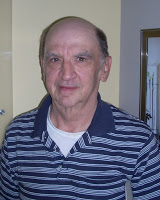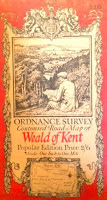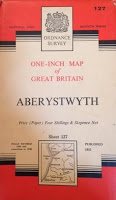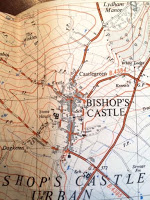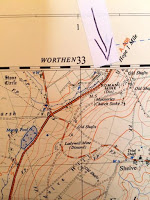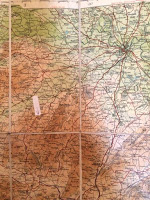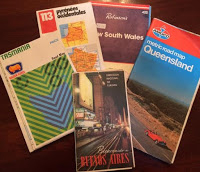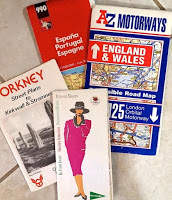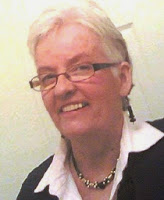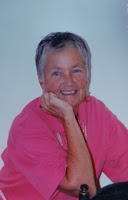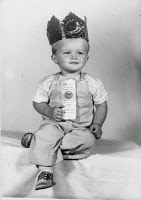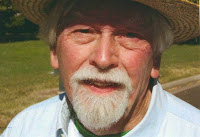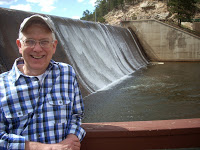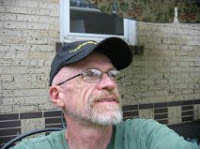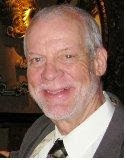So clearly is an adverb that means without doubt or obviously. With that definition in mind it is a word I should “clearly” be very cautious in using. It should be admonition enough against using this word that the main school of Korean Zen I have followed for years preaches, “don’t know mind”. In a jacket blurb for Richard Shrobe’s 2004 book Don’t Know Mind author Jane Dobisz defines Don’t Know Mind as “our enlightened mind before ideas, opinions, or concepts arise to create suffering”. Well, I guess that might explain why despite my privileged white male existence I feel I suffer so much.
Let me cast caution to the wind and most likely prove my Zen teachers right by sharing examples of where I at least quietly in my own head use the word clearly. Multiple times a day I most often say silently to myself: clearly, you are an idiot. Or clearly, your driver’s license should be permanently revoked. When seeing the current White House Press Secretary at her daily briefs and saying out loud to the T.V. clearly a blind monkey did your makeup. And most frequently these days clearly the words ‘President Trump’ must just be part of a bad dream and I’ll wake up soon.
Putting the many ideas, concepts, and opinions aside that I so often attach the word clearly so there are somethings in my life that are fact and the use of clearly or its synonyms ‘without doubt’ or ‘obviously’ are quite appropriate. Without a doubt, my HIV meds are keeping me alive. It was quite obvious that the early symptoms of HIV infection and T-cells below 200 I was experiencing in the mid to late 1990’s were clearly related to poor viral control due to inadequate medications.
Without doubt, I have diabetes with my most recent HbA1c being 7.6. Clearly, this needs to be addressed or the ravages of high blood sugars will come home to roost sooner than later. Since I already take a butt load of pills every day the thought of adding diabetes’s medicines is in my mind something to be avoided if at all possible. Despite what I think is the obvious solution to a low fat whole-foods-plant-based diet and daily exercise I find this regime to be quite the challenge.
At times I clearly try to rationalize the recent HbA1c of 7.6 by blaming my HIV meds, which are certainly a contributor, but not something I can do without. My recent 6 weeks in San Francisco also proved to be a dietary challenge but the reality is there are plenty of grains, fruits, and vegetables for sale all over that City, really more readily accessible than here in Denver. Just because I spent my mornings fixing breakfast for B&B guests and serving them cholesterol bombs in the form of buttered toast and eggs along with that delicious class one carcinogen, bacon, I clearly did not need to sample the leftovers. Serving steel cut oats, almond milk and fruit for breakfast to most B&B guests would not result in many positive online reviews I suspect.
It is easy to say but for me hard at times to resist. The smell and taste of bacon must surely be the work of the devil, if I believed in the devil: clearly here nothing to blame but my own lack of self-control.
Another fact-based use of the word for me would be: clearly I am one lazy-ass writer. Though participation in this group has been valuable in many ways I am also confronted with my slothful writing habits on a weekly basis, merely coasting on residual grammar habits instilled by years with the Holy Cross nuns. The prompt of a word or two as impetus for writing about my life has for me in some ways been quite ingenious and on occasion productive. It does get me to put fingers to keyboard though most often just a few hours before group.
The lazy part comes for me in that I almost always have many ideas on a subject that would without a doubt require much more thought, energy and research than I am usually willing to devote to it. The excuse I most often use is to keep my word count less than 800 and I do find it a worthwhile challenge to get the point across in as few words as possible. A more honest reflection here might bring into question my need to use valuable time watching all 16 Dead and Company shows, each at least three hours long, on their current fall tour or my near-daily masturbatory dedication to online adult entertainment, many hours clearly thrown into that void. That would be the adult entertainment into the void and not the Dead, who are playing superbly this go around by the way.
So despite my shortfalls here the discipline of writing at least several times a month has clearly been beneficial. Thank you all!
© 20 Nov 2017
About the Author
I was born in La Porte Indiana in 1949, raised
on a farm and schooled by Holy Cross nuns. The bulk of my adult life, some 40
plus years, was spent in Denver, Colorado as a nurse, gardener, and gay/AIDS
activist. I have currently
returned to Denver after an extended sabbatical in San Francisco, California.
on a farm and schooled by Holy Cross nuns. The bulk of my adult life, some 40
plus years, was spent in Denver, Colorado as a nurse, gardener, and gay/AIDS
activist. I have currently
returned to Denver after an extended sabbatical in San Francisco, California.

